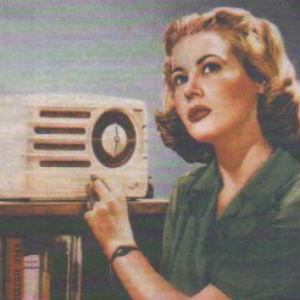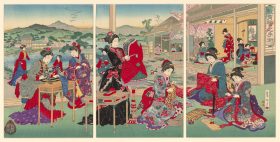An era has ended with the decision by Radio National to stop broadcasting radio plays and book readings.
But will the cuts mean a loss of arts outlets or will RN be freer to operate in a richer media world with a more adventurous creative landscape? It’s easy to be despondent when you can see what you are losing and not what the future holds, but there are real opportunities hidden in RN’s controversial decision.
When Radio National started broadcasting radio plays and book readings back in the 1930s, broadcasting was the only source of audio entertainment. For audiences, radio was the only place to hear a play (as opposed to seeing one at the theatre) and the ABC was certainly the only place you could hear an actor perform without having to buy a ticket.For playwrights and novelists ABC readings and radio drama have provided an essential outlet. For actors, musicians and production staff they have been a source of employment and a creative context. The Community and Public Sector Union estimates that since June 2011 the Radio National Drama Unit has provided work opportunities to more than 1000 Australian writers, actors, musicians and composers.
Broadcasting has lost that unique role with the advent of digital media, audio books and podcasting. As ArtsHub’s recent survey of the Top Ten Podcasts made clear there is a vast supply of creative audio material, available for free online.
RN is clearly operating in a much more competitive environment and copyright restrictions have generally prevented plays and book readings from making the transition to podcasts that the station has achieved in other sectors. ‘The rights are simply not available, not in our budget,’ says RN manager Michael Mason.
Budget clearly a big part of this. RN is looking to cut $1 million and the commitment to a new creative vision would have been more convincing had it not been accompanied by redundancies for senior production staff. The compulsory redundancy of 11 highly-qualified producers is a tremendous loss of in-house creative skill.
The decision to shut down ABC radio drama is a clear message that the genre is too expensive for the audience it gets. As Michael Hull, CPSU National President, told ArtsHub, ‘If the ABC can’t afford it, who on earth is going to?’
But we can believe RN when it says the move is not only about costs and the threat of competing media; it is also about opening up to new creative possibilities. Mason says the weekly programs Airplay and The Night Air, which will be cut in 2013, will be replaced by new creative content.
Says Mason: ‘It’s where the future of radio is, in a whole range of storytelling forms. We will still have a radio play from time to time but we really want to push the creative boundaries. We have been a bit locked down resource-wise and we will be able to explore different ideas and different ways of story-telling.’
It’s the nature of new creative forms that we won’t know what can be achieved until the programmers are given some freedom. But there’s no question that podcast producers like storytelling site The Moth and improvisational drama producer The Truth are going places far beyond the stagey play or publisher-driven reading.
The proposal for the restructure of RN’s Creative Audio Unit, provided to ArtsHub, notes, ‘Little of this engagement with new forms of audio creativity is in evidence currently on RN, and without it, our ability to engage with and lead the audio performance space is severely limited.’
‘RN is not retreating from its commitment to supporting Australian artists and creative industries, and through Creative Audio Unit, RN will continue to be engaged in the development and broadcast of new, original and innovative audio for broadcast and online delivery.’
Much of the material on the CRU development slate is first person or audience-created including letters from Australian soldiers who have served in Afghanistan, stories from ‘ordinary people’ about personal regrets and public storytelling.
But there are also promises of collaborations with performance companies and creative opportunities such as a collaboration with the Ian Reed Foundation, in which emerging writers will have the opportunity to work with an Australian composer in the development of series of short ‘audio fictions’.
Mason said the budget for hiring performers to create audio performance content will remain the same and the number of hours for creative content was increasing, from 26 hours in 2011 to 31 hours in 2013.
In this context the news from RN may be better than it feels. Curtain calls are always disappointing but that doesn’t mean we want the same show tomorrow night. Now may just be a good time to pitch a creative audio idea.
Below a more romanticised view of radio, from Woody Allen’s Radio Days





